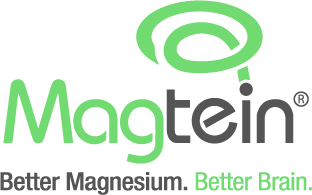The Best Time of Day to Take Magtein® (Magnesium L-Threonate)
https://magtein.com/wp-content/uploads/2025/10/Screenshot-2025-10-27-at-9.14.40-PM.png 602 600 Riley Forbes Riley Forbes https://secure.gravatar.com/avatar/3f6c9bbe830133d8a02b6d78dd24a6cf57f35765554b3106fa7c0bce0d8772aa?s=96&d=mm&r=gMagnesium plays a vital role in energy production, stress regulation, and cognitive performance. Among the many forms available, Magtein (magnesium L-threonate) stands out for its ability to cross the blood-brain barrier and raise magnesium concentrations in the brain.*
This unique property makes Magtein a preferred choice for supporting focus, learning, relaxation, and restorative sleep. Yet, one common question remains: When is the best time to take it – morning or evening?
The answer depends on your personal goals and routine. Understanding how Magtein interacts with your body’s natural rhythms can help you find the schedule that supports both cognition during the day and relaxation at night.*
How Magtein Works in the Body
Unlike many magnesium salts that mainly act in the gut or muscles, Magtein delivers magnesium directly to the central nervous system. L-threonic acid, a metabolite of vitamin C, enhances magnesium’s solubility and helps transport it into brain cells. Once absorbed, it supports neurotransmitter balance, neuronal signaling, and synaptic plasticity – the foundation of learning and memory.*Because brain magnesium levels rise gradually, Magtein’s benefits build over time. This means consistency matters more than the exact hour of intake. Regular use supports cognitive clarity, calmness, and overall neural function.*
Morning: Supporting Focus and Cognitive Clarity
Taking Magtein in the morning can help support mental alertness and concentration throughout the day. For many, this timing aligns with cognitive demands such as work or study.
Magnesium helps regulate NMDA receptors, which play a critical role in learning, memory, and balanced brain activity. These effects promote steady alertness – helping you stay focused without overstimulation.*
Tips for Morning Intake:
- Take 1-1.5 grams of Magtein with or after breakfast to support absorption and comfort.
- Pair it with omega-3 fatty acids or B vitamins to further enhance brain energy metabolism.*
- Stay well-hydrated, as electrolyte balance supports magnesium transport.

Evening: Promoting Relaxation and Restorative Sleep
If your goal is relaxation or deeper rest, evening dosing may be best. Magnesium supports GABAergic activity, which helps calm neural excitability and prepare the body for sleep.*
While Magtein is not a sedative, it helps the nervous system unwind, supporting the transition into restorative sleep.
Tips for Evening Intake:
- Take 1-1.5 grams of Magtein with dinner or 30-60 minutes before bed.
- Create a calm environment: dim lights, stretch, or practice mindfulness.
- Avoid caffeine or stimulant-containing supplements after mid-afternoon.

Why Consistency and Absorption Matter
Magnesium’s impact is cumulative – results appear with steady daily use rather than single doses. Consistent intake maintains magnesium levels in neural tissue, supporting long-term focus, sleep, and mood balance.*
Magtein can be taken with or without food. Some people prefer it with meals for digestive comfort, while others find faster absorption on an empty stomach. What matters most is routine – pairing it with a consistent part of your day, such as breakfast or your nighttime ritual.*Hydration, balanced nutrition, and adequate sleep further support magnesium’s roles in energy metabolism and neurotransmitter balance.*

Optimizing Your Routine: Practical Tips
- For focus and productivity: Take Magtein in the morning or midday with water and balanced meals.
- For relaxation and sleep: Take it an hour before bedtime as part of your nighttime routine.
- For lasting results: Use Magtein daily – consistency enhances cumulative benefits.*
Magtein’s flexibility allows it to fit into diverse lifestyles. The key is aligning your dosing with your goals – mental clarity or deep relaxation – and maintaining regular use.*
Closing Summary
The best time to take Magtein depends on what you want to achieve. Morning dosing supports focus, memory, and cognitive energy, while evening intake promotes relaxation and restful sleep. The true benefit lies in steady, consistent use. Combined with nutrient-dense meals, mindfulness, and restorative sleep habits, Magtein supports long-term cognitive resilience and calm mental performance – helping your brain function at its best every day.*
References
- Slutsky I, et al. Enhancement of Learning and Memory by Elevating Brain Magnesium. Neuron. 2010;65(2):165–177.
- Liu G, Weinger JG, Lu ZL, Xue F, Sadeghpour S. Efficacy and Safety of MMFS-01, a Synapse Density Enhancer, for Treating Cognitive Impairment in Older Adults: A Randomized, Double-Blind, Placebo-Controlled Trial. J Alzheimers Dis. 2016;49(4):971-990. doi:10.3233/JAD-150538
- Hausenblas HA, Lynch T, Hooper S, Shrestha A, Rosendale D, Gu J. Magnesium-L-threonate improves sleep quality and daytime functioning in adults with self-reported sleep problems: A randomized controlled trial. Sleep Med X. 2024;8:100121. Published 2024 Aug 17. doi:10.1016/j.sleepx.2024.100121
- National Institutes of Health (NIH). Magnesium – Fact Sheet for Health Professionals. https://ods.od.nih.gov/factsheets/Magnesium-HealthProfessional/. Accessed 2025.
These statements have not been evaluated by the Food and Drug Administration. This product is not intended to diagnose, treat, cure, or prevent any disease.

